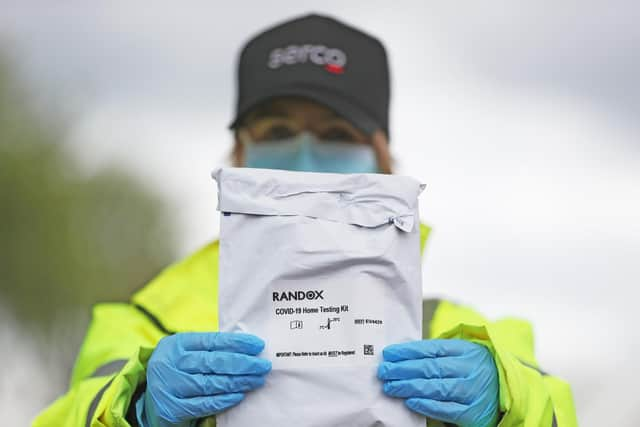Sheffield contact tracing group warns two thirds of people did not comply with instructions to self-isolate
The Sheffield Community Contact Tracers, which outside of the Government’s scheme has been the only group contact tracing in the UK, tracker 58 people who had been in contact with 10 coronavirus patients using volunteers.
And those involved said although it showed using volunteers was a good method, two thirds of those tracked did not fully cooperate and the majority of them worked in the NHS or social care.
Advertisement
Hide AdAdvertisement
Hide AdThe fear is this revealed a resistance to contact tracing in healthcare settings, and one in five initial patients only responded to the volunteers once a physical hand delivered message was received rather than a phone call.


The conclusions show the Government’s test and trace programme, which has been launched today to get started tomorrow, may struggle if it relies solely on the public adhering to the rules.
Dr Joan Miller, a retired Public Health Doctor, said: “Successful contact tracing takes meticulous hard work. In Covid-19, this is also going to take tight liaison and cooperation between agencies. The voluntary and community sector have a very valuable role to play here alongside statutory bodies because they reach communities others can’t reach.
“Government proposals for a call centre-based national system may be too centralised, too remote and is now too delayed to be effective at this critical moment.”
Advertisement
Hide AdAdvertisement
Hide AdThe results of the pilot study, designed to assess the effectiveness of volunteers in the absence of a national contact tracing programme, has shown that volunteers from community organisations can be highly effective in contacting patients and finding their contacts.
The report also suggests that contact tracing can be resisted in workplaces, even in the NHS, care homes and home care where contact tracing systems, social distancing of staff and a culture supportive of self-isolation frequently do not exist.
Dr Mike Tomson, a retired local GP, added: “Unlike illnesses such as TB or meningitis needing contact tracing, there is no cure on offer for Covid-19. This means that persuading people to isolate for 14 days is a challenge.
“We’ve found this more likely to happen with local volunteer tracers in regular phone contact, supporting and maintaining links with the people in quarantine. It is hard to see how complex discussions on, for example, quarantine in a small flat with several people, can be achieved without a continuing relationship.”
Advertisement
Hide AdAdvertisement
Hide AdDr Bing Jones, a retired local doctor, said: “I am sad that so many basic public health measures are still not in place. Health and social care workers are at high risk of contracting Covid-19. As a consequence they have become the unwitting spreaders of this infection. Contact tracing to minimise this onward transmission must be put in place immediately.”
Baroness Dido Harding, who was appointed to lead the programme of testing and tracing, said the vast majority of the public had been adhering to the rules so far.
She said although the Government does have the power to impose fines, the approach the Government was taking was to trust people to act within guidelines and isolate when asked to.
Comment Guidelines
National World encourages reader discussion on our stories. User feedback, insights and back-and-forth exchanges add a rich layer of context to reporting. Please review our Community Guidelines before commenting.